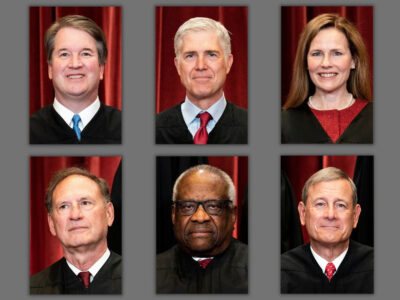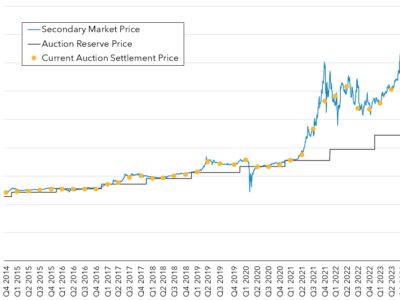Politics, the Environment, and the Rural/Urban Divide
Rural areas have been home to regulatory skeptics. But there may be ways of changing that.
Is there an urban/rural split in America? Definitely so, in politics, demography, and economics — and on the environment.
Consider this, from Dan Balz at the Washington Post: “in the 2,332 counties that make up small-town and rural America, [Trump] swamped his Democratic rival, winning 60 percent of the vote to Clinton’s 34 percent.” But Balz reports that Trump’s vote percentage in urban areas was 30% worse, flipping the margin.
And it’s not just Trump – the Republican and Democratic parties as a whole split along similar lines. This split goes beyond politics. It encompasses huge differences in demography, economics, and public health. And in the impacts of environmental regulations. Of course there are regional differences as well — such as West Coast vs. Deep South. Some of those regional differences deserve closer attention. Blake Hudson points out that Southern Democrats are less supportive of climate action than others in the party, for reasons that aren’t clear. But as he also observes, even within the same region, cities today are much different than the countryside.
Begin with demography and economics. According to Brookings researchers, the 53 largest metros account for over 95% of the nation’s population growth and 73% of the employment gains since 2010. Rural areas—those with no metros over 250,000 –are losing population and account for a declining share of the national economy. In other words, Brooking says, “9 percent of the population lives in smaller metros that are stagnant or slipping as a group and another 14 percent in rural places that are almost all declining.” It’s not hard to see why people are unhappy.
Much of Trump’s economic program is designed to appeal to rural voters. He wants to expand mining and drilling, activities that generate jobs in rural areas. Manufacturing plants are often located near small cities rather than big ones, also making them appealing to voters in less-urbanized areas. Efforts to deregulate these industries are also likely to meet with approval in areas where such industries are economically central. On the other hand, local economic interests may be differently aligned in areas where the local economy depends on tourism and part-time residents with second homes. Preserving the landscape and environmental amenities may outweigh losses from foregone mining or logging enterprises.
On the environmental side of the balance, rural voters are situated very differently from their urban counterparts. A CDC study shows that rural voters have limited exposure to particulate pollution, which poses serious health risks in more urbanized areas. So rural Americans don’t have the same interest in cleaning up the air.
On the other hand, according to the same CDC study, rural Americans are more likely to encounter unsafe drinking water. Ninety-percent of Americans get their water from community water systems. Ten percent of rural water systems violate federal water quality standards, but only half as many urban systems. And the remaining 10% who depend on well water are at even more risk, particularly if groundwater has been contaminated by pesticides or toxic waste. So it’s not just places like Flint, Michigan that have problems. It’s probably no coincidence that even under Trump, EPA has continued to express support for Superfund cleanups.
Despite the resistance of Republican voters to acknowledging the issue, rural areas are probably even more exposed to climate-related risks than urban ones. The government’s 2014 national climate assessment predicted more water scarcity in many areas, with more competition between agriculture and other users such electricity generators that use water for cooling and mining operations. Risks of low crop yields and crop failures will increase. There may also be increased disruptions in shipping of grains and other products. The aging populations in many rural areas will be more vulnerable to health impacts.
Although some environmental regulations may cause job losses in rural areas, others have the capacity to create new jobs and income flows. Our environmental law center did a study of the impacts on the San Joaquin Valley of California’s climate change regulations. Here’s what we found:
- After accounting for compliance and other costs, the cap-and-trade program had direct economic benefits to the San Joaquin Valley of $119 million and another $80 million in indirect benefits.
- There was a potential negative impact on 400 jobs due to cap-and-trade compliance from 2013 through 2015, but on a net basis, more than 700 jobs were created directly, and more than 1,600 supporting service and industry jobs were created indirectly, in the same period.
- From 2002 to 2015, California’s ambitious renewable programs created about 31,000 direct jobs in the San Joaquin Valley — for people building and operating renewable-energy facilities, for example — and created another 57,000 indirect and induced jobs for suppliers, supporting businesses and the like, for a total of 88,000 jobs.
Numbers like these might get rural voters to reconsider some of their views about what their areas need to thrive.
The bottom line is that it’s easy to understand why Trump’s promise to resurrect old industries has appeal in many rural areas. For that reason, it’s crucial to keep up our efforts to help rural residents understand the ways in which they are on the front-line of climate change. It’s also important to promote the economic benefits that renewables and other climate-related policies can have to some of those areas. Drinking water quality is another issue that may have appeal to these residents. They may be a resistant audience, but that’s no reason to give up on efforts to get the message through.








Reader Comments